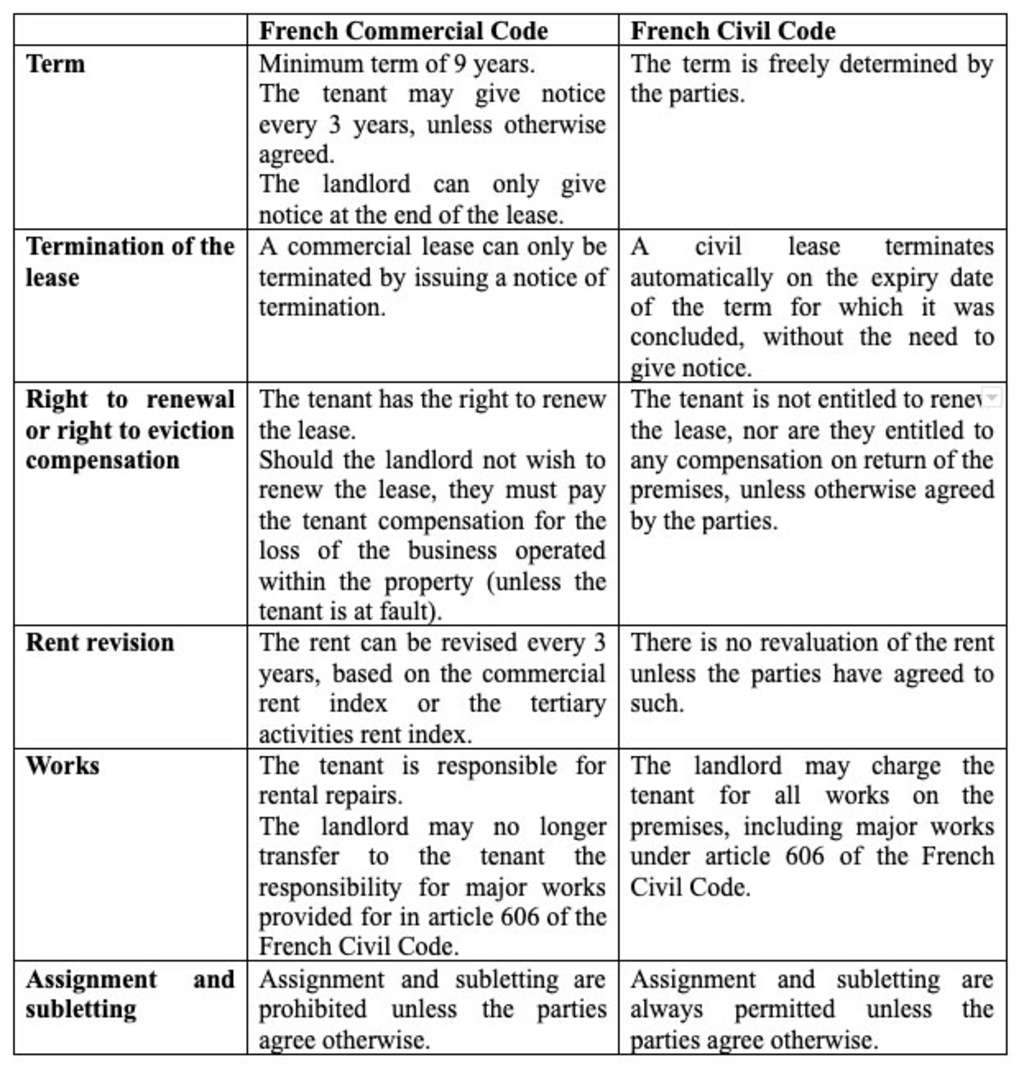Commercial and civil hotel leases in the French hotel industry: comparison and issues
Commercial leases are not the only way of leasing a hotel property.
In some cases, commercial leases are prohibited. This is the case, for example, when the entity wishing to sublet a hotel holds its rights under a long lease/ emphyteutic lease “bail emphytéotique” or a property lease “credit bail immobilier”. Both long lease and property lease agreements may, in fact, forbid subletting through a commercial lease. In this instance, a civil lease is required if the premises are to be sublet; an agreement that is fully subject to the provisions of the French Civil Code.
Occasionally in the hotel sector, parties may voluntarily place themselves under the civil lease regime (notably after a commercial lease). This is the case for certain civil lease agreements concluded between institutional hotel investors and operators who have been partners in asset management for a long period of time. The civil lease thus becomes a “tailor-made” contract, making it possible to circumvent the commercial lease constraints resulting from the provisions of the Pinel Law, in force since 2014, that abolished the practice of “triple net” leases.
N.b.: articles 1709 et seq. of the French Civil Code apply in principle to all leases, subject to the provisions of specific legal regimes such as residential leases, professional leases and commercial leases.
This is the case in particular with article 1719 of the French Civil Code, which imposes the basic obligation on the landlord to deliver the premises and to ensure peaceful enjoyment thereof, or article 1728 of the French Civil Code, which requires the tenant to respect the purpose of the premises leased and to pay the rent regularly.
Commercial leases, articles L.145-1 et seq. of the French Commercial Code differ on many points from the legal regime of the Civil Code as summarized below.
NOTE ON THE MAIN DIFFERENCES BETWEEN COMMERCIAL AND CIVIL LEASES IN THE FRENCH HOTEL INDUSTRY:
In summary: a civil lease allows the parties greater contractual freedom, but a commercial lease offers the tenant what is commonly known as “commercial ownership”, i.e. a guarantee of right of renewal of the lease or, failing that, compensation for the loss of business.
#commercial lease #civil lease #hotel sector #institutional investors #Pinel Law #Commercial Code #Civil Code #commercial property
Christopher Boinet et Anne Epinat, Lawyers at the Paris Bar and Partners at In Extenso Avocats
About In Extenso Avocats
In Extenso Avocats is a network of business law firms. Specialised in hotel and tourist accommodation law, our lawyers advise hotel and tourist residence owners and operators, real estate and hotel investment funds, as well as private and public investors in France and abroad. For more information please visit www.inextenso-avocats.com/en/.
Christopher Boinet
FR - IE Paris - Avocats
In Extenso Avocats


